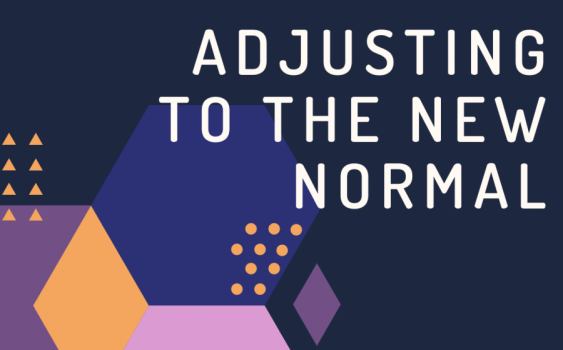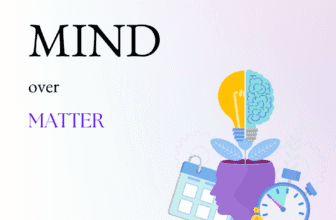Adjusting to the new normal
By S. Uma Maheswari
“We human beings are constantly in combat, at war to escape the fact of being so limited, limited by so many circumstances we cannot control. But instead of escaping, we continue to create suffering, waging war with good, waging war with evil, waging war with what is too small, waging war with what is too big, waging war with what is too short or too long, or right or wrong, courageously carrying on the battle.”
—Ajahn Chah
New normal has become the new term used everywhere after the hit of Corona virus disease 2019 (COVID) pandemic. The people’s entire lifestyle and daily routines have changed upside down. Going to school, playing on the grounds with friends, moving to work, traveling to native, parties, weddings, get together, family gatherings……all has come to a halt. Instead, infection, lockdown, precautions, social distancing, sanitizing, and containment zones are the key terms used everywhere…Online system, has taken the place of the physical presence of all. Children and college students started having online classes, working people started to work from home, and housewives started online shopping. Panic buying has become a trend during the lockdown.
Adjusting to the new normal is different and difficult for everyone to get adapted to. It often involves going through the various stages of grief from anger to denial to sadness until finally, we reach acceptance. Being clueless and not knowing how long it will take for the situation to become normal leads to confusion and stress. More than physical well-being, mental health has become the need of the hour and people are highly stressed and anxious as to how to overcome this pandemic and if COVID affects any of the family members, how to get him/her treated with precautions. The unknown is scary and hard. It’s even scarier when I start thinking about all sorts of what-ifs and worrying about loved ones. We have to feel all the feelings and have to navigate through the feelings to get to acceptance.
News channels flash the number of deaths and the lack of beds and oxygen cylinders in hospitals. People rush here and there, not knowing where to go for taking treatment for their near and dear ones being infected. The people who died due to COVID did not get a place in the crematorium for burial. Hence many were burnt near residential areas, which caused even more panic among the people in those areas.
Many are in turmoil regarding how to cope with and manage this crisis. Many psychologists suggested the following points to adapt and adjust to the new normal.
Organising the daily routine/ lifestyle habits
Fix or change your wake-up and bedtime. Early to bed and early to rise is the mantra for a healthy lifestyle to start up an energetic day.
Scheduling your activities
After waking up, plan your day. Schedule the list of activities that you want to complete during the day and prioritize those activities.
Adapting to online classes/work-from-home culture
Due to the pandemic situation, everywhere online classes have become a necessity to continue children’s education, and work-from-home culture has been rooted everywhere in order to keep up the pace of the work that is pending. No other option left but to continue the routine and keep up the spirits of the children to stay in the loop. Also, the public and private organizations felt that completion of the tasks was the priority otherwise there will be a great financial loss for the individuals, companies, and overall, the country.
Move and exercise!
After getting up, 20-30 minutes of walking or exercise, light stretches at home, light dance movements will help you to stay active and to keep up your metabolism high, and burn your daily calories. It improves your mood, calms your mind, and boosts up your endorphins, which help to lower your anxiety and also induce good sleep. Or else, obesity will increase and metabolic disorders will take its place. Meditation and deep breathing also help to keep our minds calm and at peace. Breathing exercise improves lung functioning.
Eat healthy food
Eating healthy food and self-care has become a mantra now as COVID can be fought only by increasing one’s immunity which can be done by eating healthy and immunity-boosting foods. Junk foods are common and popular among kids and working people, which are being replaced by healthy foods in recent days. The importance of sitting under the sun, taking turmeric water, inhaling steam, intake of pepper and honey, citrus fruits, fresh leafy vegetables, and intake of zinc-infused fruits/vegetables or supplements has been under the limelight nowadays.
Listen to music
Listening to good music helps to heal stress and calm your mind. It helps in the relaxation of the mind and body.
Stay positive
You cannot control what happens to you, but one thing you can control is how you respond to it. It is up to you to look for the right side in everything and react positively.
Stop panic buying
Getting in touch with reality is an essential part of managing panic. Misinformation about the lockdown by different people, and media is what has led to this sense of hysteria. Before going to the store, cross double check whether you need to buy anything which is absolutely essential. Discomfort does not mean that the world is ending. By buying 20 bottles of sanitizers, you are only cluttering the house and taking those things from those who have a real need. Be considerate and do not do it.
Journaling and gratitude
No matter how inferior things may turn out, you must realize that we still have things in our lives that most people on Earth don’t have. The research found that your brain always focuses on the negative elements of life, like losses, failures, worries, etc. That’s why we need to focus more on good things. We should make a gratitude list and read them whenever we get a chance. It will attract more blessings, and you will feel much better in life. Write down the good things that had happened in your everyday life and be thankful for the people and nature that made it possible.
Be mindful
Mindfulness and compassion practice can help us cultivate a new way of relating to life in which we let go of our battles in our hearts. Being mindful helps to open our hearts with kindness.
Communicate
A simple phone or video call can work wonders to help your loved ones feel connected. Just hearing the sound of a family member or friend’s voice can be comforting and will help us to relax. It also helps us to keep up our spirits high.
Stay away from gadgets when not in use
Stay away from gadgets and don’t keep on checking your mobile or sit in front of your laptop just to while away your time. Use the gadgets when absolutely necessary and try to spend time with the family and children the rest of the time. Keep away from disturbing news and news channels.
Plan and try to learn new things which you wanted to learn (e.g., Arts and crafts)
Use this lockdown period to learn new skills, hobbies, or courses online which you wanted to pursue.
Take precautions like using sanitizers, wearing masks, and maintaining social distancing.
Practicing precautions and physical distancing is not about punishment or control. It is to protect and minimize the spread and the disastrous consequences of an unpredictable illness that is wreaking havoc in our world.
Grief without denial
Losing someone near or dear will always be painful. But learning to grieve without avoidance helps to cope with death in the healthiest way.
This is a situation where we all must figure out how to respond instead of reacting, which will make the best out of it. Some people are managing it, and some had to learn to adjust to the new normal.
Few learning that the pandemic has taught us: 1) be friendly with nature, and animals, 2) the importance of immunity and a healthy lifestyle 3) family, and self-care matter most, 4) the importance of mental health 5) Be financially prepared, 6) going online and work from anywhere culture 7) importance of traditional medicines, 8) expect the unexpected, 9) the poor suffer the most, 10) focus on what you can control.
While we are all in a different mental spaces during this pandemic, we all should remember that we are in this together. We can hold all the beauty and the pain of life in our hearts and breathe together with courage and compassion. For thousands of generations, we humans have done the same and have survived hard times. We know how to do this. Following the precautions and safety measures like wearing masks, using sanitizers, washing hands and physical distancing will help to reduce the spread of the disease. Some methods of coping can be problem-solving, sharing things, cheering and helping people on, learning from new experiences, re-evaluating priorities, and reflecting on how people coped with far worse in the past.
While today’s pandemic is unique and the future is uncertain, the outbreaks of the past suggest ways we can respond now to achieve better outcomes tomorrow. I trust that our ability to move through this experience can bring about an opportunity to learn and grow.
********************************
Reference:






